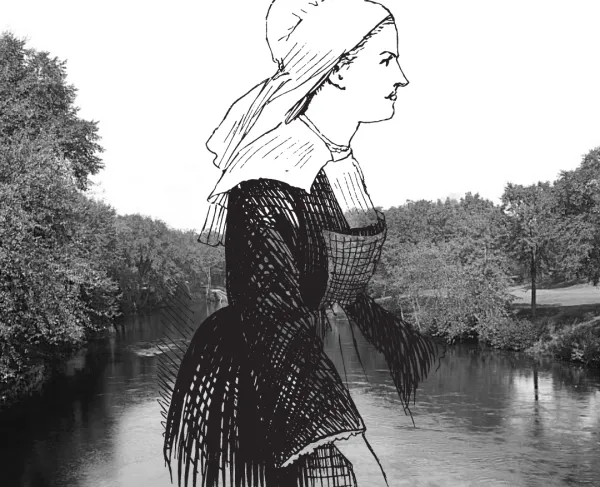Prudence Wright

A patriot, soldier, and hero, Prudence Cummings Wright defied traditional gender roles to protect her town during the American Revolution.
Born on November 26, 1740 in Dunstable, Massachusetts, Prudence Cummings was reared in a home with divided loyalties. As unrest and revolutionary sentiments disseminated amongst the colonists, Prudence found herself on the side of the Patriots, while two of her brothers pledged allegiance to the Crown. In 1761, Prudence married David Wright, a stalwart Whig and avid supporter of independence.
The couple settled in Pepperell, Massachusetts, where they became indispensable leaders of the cause. David, along with other patriotic Pepperell men, responded to the war’s first shots at Lexington by marching to a nearby town to intercept advancing British troops. Meanwhile, Prudence spearheaded a novel and ingenious venture for the women left at home: a female militia. Dubbing themselves the “Minutewomen”, Prudence, who had been elected as the militia’s captain, and about 30-40 other townswomen dressed as men, shouldered muskets, wielded pitchforks, and marched to Jewett’s Bridge. It was here on the Nashua River that the “Prudence Wright Guard” planned to intimidate the approaching Redcoats. The courageous women successfully stopped the British, captured several soldiers, and intercepted vital dispatches regarding troop movements. To this day, a marker near Jewett’s Bridge honors the event, reading: “Near this spot a party of patriotic women, under the leadership of Mrs. David Wright, of Pepperell, in April, 1775, captured Leonard Whiting, a Tory who carrying treasonable dispatches to the enemy at Boston.”
Both Prudence and her husband continued to fight for independence throughout the war, while raising their eleven children. Prudence died in 1823. Her epitaph reads: “In Memory of the Captain of the Bridge Guard.”





